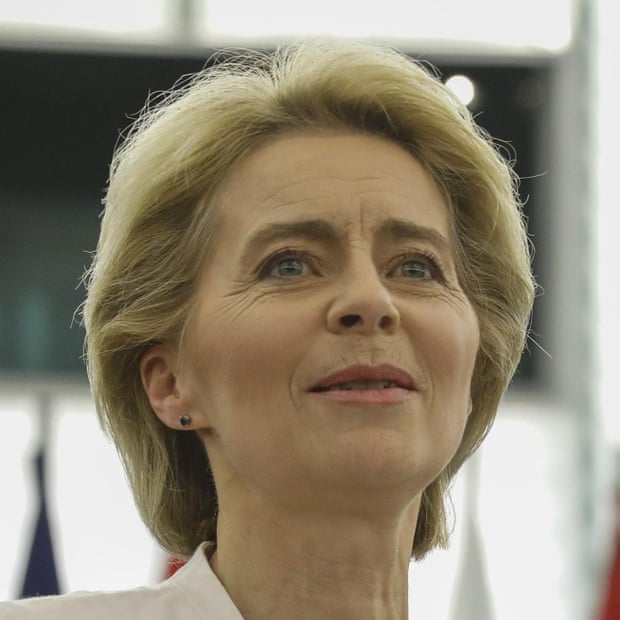EU leaders are being urged to select at least one woman when replacing Jean-Claude Juncker and Donald Tusk as the presidents of the European commission and council, positions that have only ever been held by men.
The call is being made by 70 leading politicians, including the top candidates for the jobs as well as former prime ministers and the former commission president Romano Prodi.
There has never been a female president of the European commission or council. As it stands, out of 21 commissioners, eight are women and just one of the six vice-presidents is female.
Q&AWhat does the European commission president do?
Show

The president is proposed by the European parliament and nominated by the European council of leaders of the EU member states. They lead the commission's work in implementing EU policies, chair the weekly commission meetings and set its policy agenda. They also represent the EU at European council meetings, G7 and G20 summits and at bilateral summits with third countries.
The role was held by Jean-Claude Juncker from November 2014 until July 2019, when he was replaced by Ursula von der Leyen, the former German defence minister.
Following the European election results, the 28 heads of state and government will try to reach consensus on who will lead the commission and council from November. They are to meet for a working dinner next Tuesday to start the process.
“Equal representation is in everyone’s interest,” the group’s statement, on the website of the Jacques-Delors Institute, said. “It is not a woman issue. Yet some still act as if women are a minority. Women are not a minority. Women and men should be represented when it comes to European leadership. So help us make sure that the new European leadership is equal. It is time we have a gender balanced European Commission.”
The group’s demand has been signed by Manfred Weber, the European People’s party lead candidate, the Dutch politician Frans Timmermans, of the Social Democrats, the Green Party’s co-nominees Bas Eickhout and Ska Keller along with Margrethe Vestager, the European commissioner for competition, and Guy Verhofstadt, of the liberal Alde party.
In 2014 Juncker was selected through the Spitzenkandidaten (leading candidates) process under which the lead candidate of the biggest group in the European parliament is made the commission’s president.
Under that system Weber, who has not served in a government position, would be the most likely next president but the French president, Emmanuel Macron, is among a large group of leaders who are not willing to accept his appointment.
In the last few days, Macron reiterated he did not feel committed to the system of Spitzenkandidaten.
“In my opinion, experience at the highest level of government or the European commission is undeniably an important criterion,” he said. “A more or less long experience because I want all generations to be represented.”
Tipped female candidates for commission or council president include Lithuania’s president, Dalia Grybauskaitė, the chief executive of the World Bank, Kristalina Georgieva, and the managing director of the International Monetary Fund, Christine Lagarde.
The German chancellor, Angela Merkel, has also been mooted for a role but she has repeatedly insisted she was not interested.
